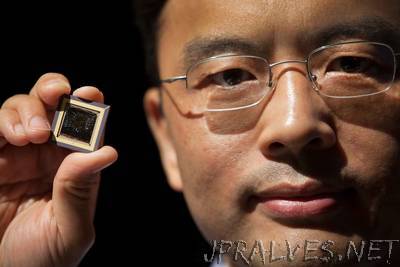
“Inspired by how mammals see, a new “memristor” computer circuit prototype at the University of Michigan has the potential to process complex data, such as images and video orders of magnitude, faster and with much less power than today’s most advanced systems. Faster image processing could have big implications for autonomous systems such as self-driving cars, says Wei Lu, U-M professor of electrical engineering and computer science. Lu is lead author of a paper on the work published in the current issue of Nature Nanotechnology. Lu’s next-generation computer components use pattern recognition to shortcut the energy-intensive process conventional systems use to dissect images. In this new work, he and his colleagues demonstrate an algorithm that relies on a technique called “sparse coding” to coax their 32-by-32 array of memristors to efficiently analyze and recreate several photos. Memristors are electrical resistors with memory—advanced electronic devices that regulate current based on the history of the voltages applied to them. They can store and process data simultaneously, which makes them a lot more efficient than traditional systems. In a conventional computer, logic and memory functions are located at different parts of the circuit.”
